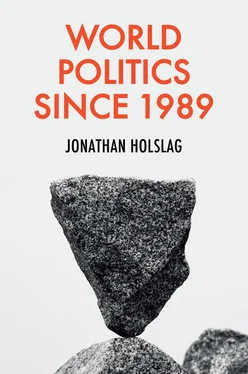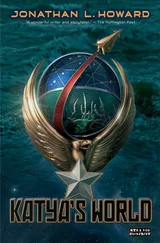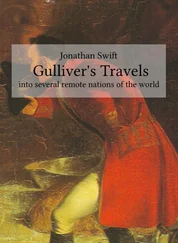If the West expected its partners to adjust to Western values, China made it clear that the West had better mind its own business. Beijing played Western companies against one another. The American president stated that he hated his China policy, yet insisted that his country had to continue to try to “improve” China. At the same time, Western investors turned their back on India. Russia emerged from the 1990s disillusioned. Less than a decade after the fall of the Soviet Union, longing for strong central power returned and the fight against NATO rekindled. In the Middle East, a dramatic intervention was launched against Iraq. Afterwards, the West found itself actively protecting authoritarian regimes. Hence, chapter 6concludes, the West failed to lead and started making its rivals rich. The 1990s were a period of fast growth and confidence, epitomized by television series like Friends and Sex and the City , but the pillars of that prosperity were starting to corrode.
The following three chapters discuss the period between the bursting of the Dotcom bubble around the year 2000 and the terrorist attacks around the turn of the century and the height of a new financial crisis in 2009. This forms the second act. Chapter 7concentrates on the ongoing failure to strengthen Western society from inside. Economically, the West literally moved from one crisis to another without learning its lesson. It was awash with capital, but hardly used it to invest in the vital tissue of its society. It created new bubbles that caused the so-called subprime crisis in the United States and the Eurozone crisis. In the wake of the dramatic terrorist attacks in 2001, American patriotism was promoted, but it became flimsy. Companies claimed to be more ethical, yet sourced more and more from countries with lax environmental and social standards.
Chapter 8takes stock of Western foreign policy. American foreign policy became a combination of a dysfunctional crusade against terrorism and an ineffective campaign to advance globalization. The global war on terror, with interventions in Afghanistan and Iraq, was badly planned, came at a staggering financial cost, and destroyed what was left of international legitimacy. While soldiers were being killed on the frontline, governments kept befriending the very states that sponsored radical Islam. Europe tried to profile itself more as a soft power, but also undermined its principles with an opportunistic stance toward various authoritarian regimes. The West failed to reform international economic governance, so that competitors like China asserted themselves as alternative partners. The leadership of the West was challenged primarily by its own inconsistent policies.
The next chapter clarifies how this high age of globalization coincided with a growing contestation of Western influence. China and the Gulf States banked on Western consumerism; other developing countries banked on Chinese growth. China emerged as Asia’s most powerful country. India and Japan were left behind; other Asian countries were pitted against one another. Russia, too, aimed at a sphere of influence. Countries in the Middle East consolidated autocracy and armed themselves to the teeth. In the Global South, a large part of the revenues from the commodity boom disappeared. Extreme poverty, slums, and precarious employment remained widespread. The situation proved an incubator of war, terrorism, and new great power rivalry.
The final act, also consisting of three chapters, examines the period between 2010 and 2019. This period gave the Western world more relief. Politicians could pride themselves that the financial crisis had not turned into an economic Armageddon and that there was recovery. Still, large parts of society remained unconvinced. The social fabric of the United States and Europe continued to corrode. In Europe, the common currency was saved, but citizens remained skeptical and entrepreneurs reluctant to invest. The response to migration also undermined the credibility of pragmatic politicians. The mood of confidence of the 1990s gave way to uncertainty. As rightist demagogues were on the march, pragmatic politicians were seen mourning the death of the ideals they themselves had buried. But now, at least, they could blame nationalists for that malfeasance.
Chapter 11shows that the West could still not rebalance its ties with China, despite more assertive nationalism and the corona pandemic revealing the downside of long supply chains. It also betrayed the call for democracy of the Arab Spring and fell back into its habit of sponsoring dictators as a quick fix for instability. The rise of the Islamic State led to an inconsistent military response that mainly repressed insecurity in the Middle East. Military strains were visible in regard to Russia and China. Both countries deployed missiles and other systems to deny access to their neighborhoods. The West completely destroyed what was left of its prominent role in international global governance. This was a period of international abdication.
The world order that came forth was fragmented and turbulent. As a result of the rise of China, the old geopolitical dilemma of the main maritime power, the United States, facing a new continental power, China, returned. Xi Jinping destroyed the last hope that trade would make his country democratic. Many Asian countries saw no option but to accept China as an inevitable partner. South Asia remained a waiting room of globalization, overshadowed by China. Africa became once again an arena of great power rivalry. Three important forces came to shape world politics: the relative decline of the West, a demographic explosion in a context of poverty in the South, and the rise of China. Amidst all this, regional powers, from Russia, through Turkey, to Saudi Arabia, hedged their bets. They reduced Western influence so as to protect their national interests more assertively. The new order was immensely fragile. There was strife between states and strife inside states. Thirty years after the world pulled down the Berlin Wall, new walls and fissures emerged everywhere.
1 1. Jenny Erpenbeck, Thomas Brussig, Kathrin Schmidt, David Wagner, and Sabine Rennefanz, 2019. Watching the fall of the Berlin Wall. The Guardian, November 9.
2 2. Thomas Friedman, 2005. The World Is Flat. New York: Farrar, Straus and Giroux; Martin Wolf, 2005. Why Globalization Works. New Haven, CT: Yale University Press; Jagdish Bhagwati, 2004. In Defense of Globalization. New York: Oxford University Press.
3 3. Richard Baldwin, 2016. The Great Convergence. Cambridge, MA: Harvard University Press.
4 4. Barry Buzan, Ole Waever, and Jaap de Wilde, 1998. Security: A New Framework for Analysis. London: Lynne Rienner; Scott Barrett, 2007. Why Cooperate? The Incentive to Supply Global Public Goods. New York: Oxford University Press.
5 5. Time’s cover of October 10, 1995 ran the following title: “Black Renaissance”; The Economist of December 3, 2010 was titled “Africa Rising”.
6 6. “Africa Rising,” The Economist, December 3, 2011.
7 7. Conversation with former South Korean minister, Singapore, March 24, 2018.
8 8. Lord Bolingbroke. Quoted in: Per Maurseth, 1964. Balance-of-power thinking from the Renaissance to the French Revolution. Journal of Peace Research, 1(2), 120–36.
9 9. Sustainable Development Solutions Network, 2019. World Happiness Report. Available at: https://worldhappiness.report/ed/2019/changing-world-happiness/
10 10. Abhijit Banerjee, and Esther Duflo, 2011. Poor Economics: A Radical Rethinking of the Way to Fight Global Poverty. New York: Public Affairs.
11 11. Kenneth Waltz, 1959. Man, the State, and War. New York: Columbia University Press.
12 12. Linda Weiss, 1998. The Myth of the Powerless State. Ithaca, NY: Cornell University Press; John Dunning (ed.), 1999. Governments, Globalization, and International Business. Oxford: Oxford University Press; David Smith, Dorothy Solinger, and Steven Topic, 1999. States and Sovereignty in the Global Economy. New York: Routledge.
Читать дальше

![Деннис Лихэйн - Когда под ногами бездна [Since We Fell ru]](/books/25722/dennis-lihejn-kogda-pod-nogami-bezdna-since-we-fe-thumb.webp)










